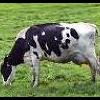- Home
- Sponsors
- Forums
- Members ˅
- Resources ˅
- Files
- FAQ ˅
- Jobs
-
Webinars ˅
- Upcoming Food Safety Fridays
- Upcoming Hot Topics from Sponsors
- Recorded Food Safety Fridays
- Recorded Food Safety Essentials
- Recorded Hot Topics from Sponsors
- Food Safety Live 2013
- Food Safety Live 2014
- Food Safety Live 2015
- Food Safety Live 2016
- Food Safety Live 2017
- Food Safety Live 2018
- Food Safety Live 2019
- Food Safety Live 2020
- Food Safety Live 2021
- Training ˅
- Links
- Store ˅
- More

Flash pasteurisation limits for concentrated grape juice
Started by fermsam, Mar 01 2011 02:24 PM
5 replies to this topic
#1

Posted 01 March 2011 - 02:24 PM
Hi there. Does anyone have any information on flash pasteurisation limits for concentrated Grape juice ?
#2

Posted 08 March 2011 - 10:07 PM
BUMP for Fermsam.
Get FREE bitesize education with IFSQN webinar recordings.
Download this handy excel for desktop access to over 180 Food Safety Friday's webinar recordings.
https://www.ifsqn.com/fsf/Free%20Food%20Safety%20Videos.xlsx
Check out IFSQN’s extensive library of FREE food safety videos
https://www.ifsqn.com/food_safety_videos.html
#3

Posted 10 March 2011 - 11:06 AM
Dear Fermsam,
Since this is not my field I am not sure I understand your requirements right but below there are some information and links that may apply to the wider category of the grape juices.
On the FDA website there are these regulatory guidelines (from point 4.0) regarding fruit juices which take into account a number of variables but I am not sure which will apply to your product. They main aim seems to be the achievement of 5log reduction of target pathogens.
In one book I found the following: 'In this method [flash pasteurisation], the juice is heated rapidly for about 1 min to a temperature just 5°C higher than the pasteurization temperature and filled into containers, which are sealed airtight under cover of steam to sterilize the seal and then cooled. This process can be used for orange juice, apple juice, grape juice, etc.' (CRC Press, Handbook of food preservation).
On another book is recommended a heat treatment of 71.1C/>3 sec to achieve 5log reduction of E.Coli, Salmonella and Listeria Mono. (CRC Press, Beverages quality and safety) in grape juice.
On this FAO document (paragraph 13.7) there is a reference to apple juice being flash pasteurised at 88C for 25-30 sec. but I could not find much about concentrated grape juice.
I hope some of the above will prove useful as I was not able to find anything specific to concentrated grape juice.
Regards,
Marco
Since this is not my field I am not sure I understand your requirements right but below there are some information and links that may apply to the wider category of the grape juices.
On the FDA website there are these regulatory guidelines (from point 4.0) regarding fruit juices which take into account a number of variables but I am not sure which will apply to your product. They main aim seems to be the achievement of 5log reduction of target pathogens.
In one book I found the following: 'In this method [flash pasteurisation], the juice is heated rapidly for about 1 min to a temperature just 5°C higher than the pasteurization temperature and filled into containers, which are sealed airtight under cover of steam to sterilize the seal and then cooled. This process can be used for orange juice, apple juice, grape juice, etc.' (CRC Press, Handbook of food preservation).
On another book is recommended a heat treatment of 71.1C/>3 sec to achieve 5log reduction of E.Coli, Salmonella and Listeria Mono. (CRC Press, Beverages quality and safety) in grape juice.
On this FAO document (paragraph 13.7) there is a reference to apple juice being flash pasteurised at 88C for 25-30 sec. but I could not find much about concentrated grape juice.
I hope some of the above will prove useful as I was not able to find anything specific to concentrated grape juice.
Regards,
Marco
|
Thanked by 1 Member:
|
|
#4

Posted 11 March 2011 - 12:15 PM
Dear Fermsam,
Do you mean concentrated apple juice? Other issues to consider are the Total Solids i.e. the higher the TS the lower the pasteurization temperature.
grapes being high acid foods require lower pasteurization temperatures compared to low acid foods like milk etc.
Regards,
Agwanda
Do you mean concentrated apple juice? Other issues to consider are the Total Solids i.e. the higher the TS the lower the pasteurization temperature.
grapes being high acid foods require lower pasteurization temperatures compared to low acid foods like milk etc.
Regards,
Agwanda
The sky is the limit..........!
|
Thanked by 1 Member:
|
|
#5

Posted 16 March 2011 - 12:00 PM
Thanks for your help. Very useful.
#6

Posted 17 March 2011 - 10:31 AM
Flash Pasteurisation is defined as High Temperature Short time Process. The temperature of 72°C for 15 seconds would be ideal. Since both apple and grape juice are slightly acidic the tempertures quoted for apple juice by Marco may also work for grape juice too.
I hope this helps.
Regards
Ajay
I hope this helps.
Regards
Ajay
Edited by Dr Ajay Shah, 17 March 2011 - 10:34 AM.
Dr Ajay Shah.,
BSc (Hons), MSc, PhD, PGCE(FE)
Managing Director & Principal Consultant
AAS Food Technology Pty Ltd
www.aasfood.com
BSc (Hons), MSc, PhD, PGCE(FE)
Managing Director & Principal Consultant
AAS Food Technology Pty Ltd
www.aasfood.com
1 user(s) are reading this topic
0 members, 1 guests, 0 anonymous users











